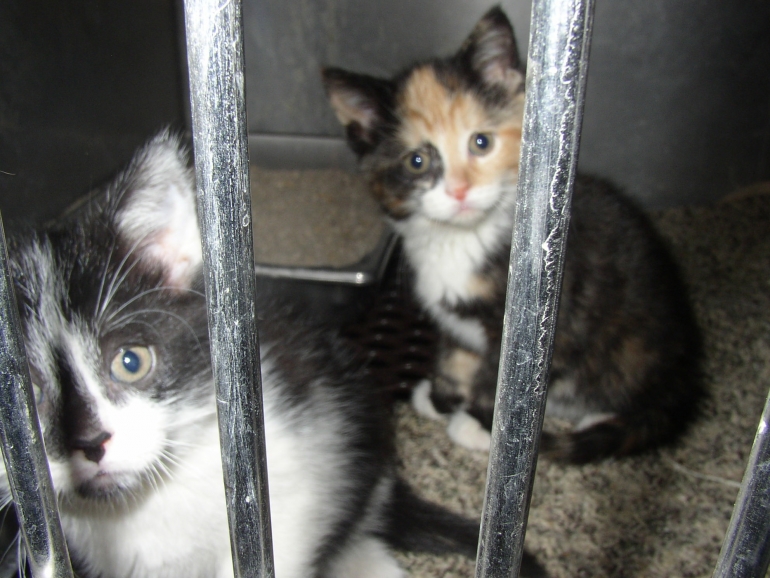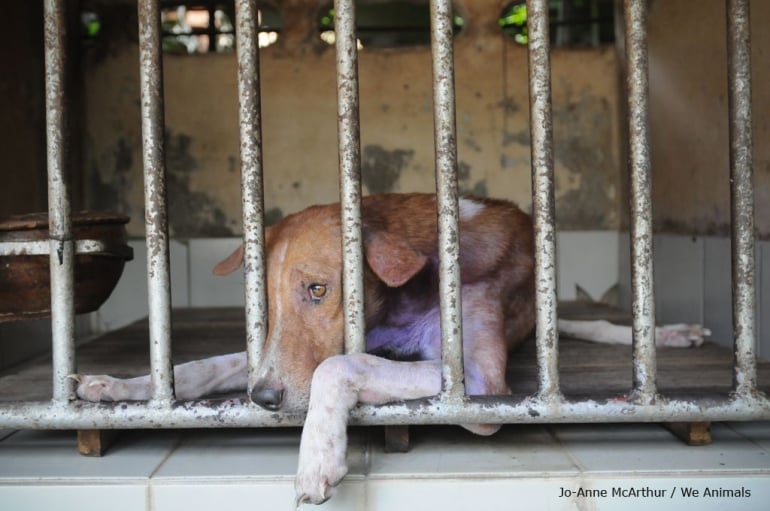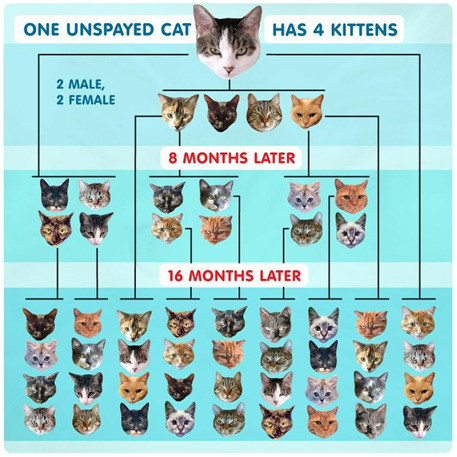Animal Homelessness: The Crisis and the Cure
Cats and dogs depend on humans for their everyday needs – food, water, shelter, veterinary care, love, and more. Yet thousands of animals across the UK have no guardian to care for them, let alone a warm, comfortable place to curl up at night. Many suffer and die on the streets or have to be euthanised for lack of good homes. Animal homelessness is a complex crisis, but the solution is simple: adopt animals from shelters or the streets instead of buying them from breeders or pet shops, and prevent unwanted animals from being born by always having your companion animals spayed or neutered.
Too Many Animals, Too Few Good Homes
At any given time, there are an estimated 100,000 dogs – and countless cats – without homes in the UK. Left to fend for themselves on the streets, cats and dogs often suffer and die after getting hit by cars, being attacked by other animals, succumbing to extreme temperatures, starving, contracting contagious diseases, and facing other dangers. Many stray animals are poisoned, shot, mutilated, tortured, set on fire, or killed in other cruel ways.
Animals are often abandoned by the people they depend on to care for them. For example, two dogs were found huddled together near a river in Tottenham Marshes, London, after apparently being dumped there. Both of them were extremely thin, and one of them, who was elderly, could barely walk. Another dog was found tethered to a fence in Bramley, Leeds, on New Year’s Day having apparently been left there overnight in freezing temperatures while fireworks were being set off nearby. The dog was so terrified that he was shaking and had wet himself.
Open-admission shelters accept every animal in need, caring for them and keeping them safe, warm, fed, and loved. But because there are so many homeless animals and not enough good homes for them all, many have to be euthanised – a procedure that’s fast and painless for animals but heartbreaking for the caring shelter workers who must perform it.
Who’s to Blame?
Why are so many animals homeless? Breeders and pet trade are major contributors to this crisis because they bring more puppies and kittens into a world that doesn’t have enough good homes for all the animals who already exist. Puppy and kitten mills – which supply animals to pet shops – churn out litter after litter, and many of the dogs and cats bred by breeders will either become homeless themselves or fill homes that could have gone to animals waiting in shelters. Puppies and kittens bought from breeders or pet shops are often taken away from their mother at just a few weeks old, leaving them sickly, traumatised, and unsocialised. This can lead to physical and mental health issues that many people are unable or unwilling to deal with.
In April 2020, a law came into force in England banning third-party commercial sales of puppies and kittens under 6 months of age. If it’s strictly enforced, “Lucy’s Law” will put puppy and kitten mills and other commercial breeders out of business. Unlicensed breeders and licensed ones who can’t show puppies and kittens interacting with their mother now face fines or prison sentences.
People who don’t have their animal companions spayed or neutered are also to blame for animal homelessness. Some may think that letting a cat or dog have “just one litter” isn’t a big deal, but that “one litter” can quickly lead to hundreds or even thousands of animals if the offspring from that litter go on to have kittens or puppies of their own, and so on.
Many people acquire animals on a whim or give them as “gifts” without considering the lifetime commitment that’s involved. When people discover that caring for an animal requires more effort, money, time, and patience than they expected, they often turn their backs on their loyal companions.
People who acquire animals in response to a “fad” often dump them just as quickly after the craze fades. In recent years, there has been a spike in the number of huskies being abandoned or handed over to shelters, which experts attribute to increased demand for the breed because of its physical similarities to the direwolves from Game of Thrones. Blue Cross adoption centres saw a137% increase in the number of miniature breeds given up between 2008 and 2013 as people tried to imitate celebrities who were seen carrying tiny dogs in their handbags.
Staffordshire bull terriers, Rottweilers, Akitas, and other breeds often acquired as macho status symbols are frequently abandoned after they become too aggressive to handle. And sadly, many animals are overlooked or abandoned simply for being the “wrong” colour: Blue Cross reported a 65% rise in the number of black cats they took in each year between 2007 and 2013, speculating that the increase was because black cats don’t show up as well in selfies.
Remember: always adopt – never shop.
Hope for Homeless Animals
The simplest, most important, and most effective way to spare cats and dogs all this suffering is to prevent more unwanted animals from being born by making sure that animals are spayed or neutered.
Every animal who is sterilised prevents potentially hundreds of thousands more from being born only to suffer and die on the streets, be abused by cruel or neglectful people, or be euthanised for lack of loving homes. Without spaying, one female dog and her offspring can produce 67,000 puppies in just six years. In seven years, one female cat and her offspring can produce a staggering 370,000 kittens!
Spaying and neutering are routine, affordable surgeries that improve animals’ health: spaying avoids the stress and discomfort that females endure during heat periods, eliminates the risk of uterine cancer, and greatly reduces the risk of mammary cancer. Neutering makes males far less likely to roam or fight, prevents testicular cancer, and reduces the risk of prostate cancer. In the UK, low-cost, subsidised spaying and neutering services for dogs and cats are offered by some companion-animal charities.
Communities that have passed mandatory spay-and-neuter legislation have reported a significant reduction in the number of animals who are taken to shelters and subsequently euthanised.
What You Can Do
Each of us can help work towards a day when every animal can have a loving, permanent home by having our animal companions spayed or neutered and by always adopting animals, never buying them from pet shops or breeders. And encourage everyone you know to do the same! It’s also important to consider whether we’re prepared to take on the lifelong commitment of caring for an animal before adding a new member to the family.




